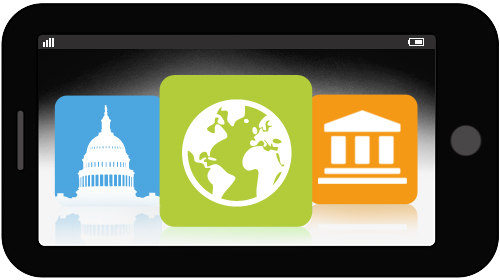
The chilling effect of surveillance may be spreading across the Atlantic.
We learned last week that GCHQ – the U.K. equivalent of the NSA – permits its employees to target the communications of journalists and lawyers. That revelation has serious implications for the work of both groups.
American surveillance is already impacting the work of U.S.-based journalists and lawyers. As the ACLU and Human Rights Watch documented in a recent report, the effects are not pretty. National security and intelligence journalists have been struggling to develop and maintain relationships with increasingly skittish sources, and lawyers are losing the freedom to communicate with clients, co-counsel, and witnesses without exposing confidential information to the government.
We depend on the press to keep us informed, helping ensure the government's accountability to the governed. But when journalists are vulnerable to surveillance, that accountability suffers.
Attorneys are also indispensable, and their right to communicate privately with clients has long been recognized both in domestic and international law. When attorneys can't communicate freely with clients, they can't build trust or develop strategy. That weakens important due process rights and diminishes our confidence in the verdicts issued by our justice system.
Like the United States, the U.K. conducts significant surveillance, including tapping fiber-optic cables to gain access to enormous volumes of Internet traffic. The revelations from last week show not only that the communications of journalists and lawyers get caught up in the U.K.'s dragnet, but also that this may happen by design.
The breadth and poor regulation of the U.K.'s surveillance practices are a problem for everyone – including Americans. Here's why.
The United States has extensive intelligence-sharing arrangements with key allies like the U.K., and through them has access to information that it can't legally collect on its own. Sharing flows both ways, so the U.K. also has unfettered access to much "raw" or unfiltered U.S. surveillance data.
As far as we know, nothing stops the United States from accessing information from GCHQ that is derived from targeting journalists or lawyers. In fact, we've seen this movie before. Last February, we learned that an Australian intelligence agency gave the NSA privileged communications between a U.S.-based law firm and its clients. We'd be foolish to assume anything different happens between the United States and the U.K. – which, like Australia, is one of the NSA's "Five Eyes" surveillance partners.
What happens in Britain reaches us, too, and U.K. surveillance programs almost certainly collect many Americans' communications. But we also don't want our government targeting U.K. journalists and lawyers by proxy.
Considering the extensive intelligence cooperation between our two countries, we should all be concerned about the United States outsourcing practices we would reject at home.
Learn more about government surveillance and other civil liberties issues: Sign up for breaking news alerts, follow us on Twitter, and like us on Facebook.

